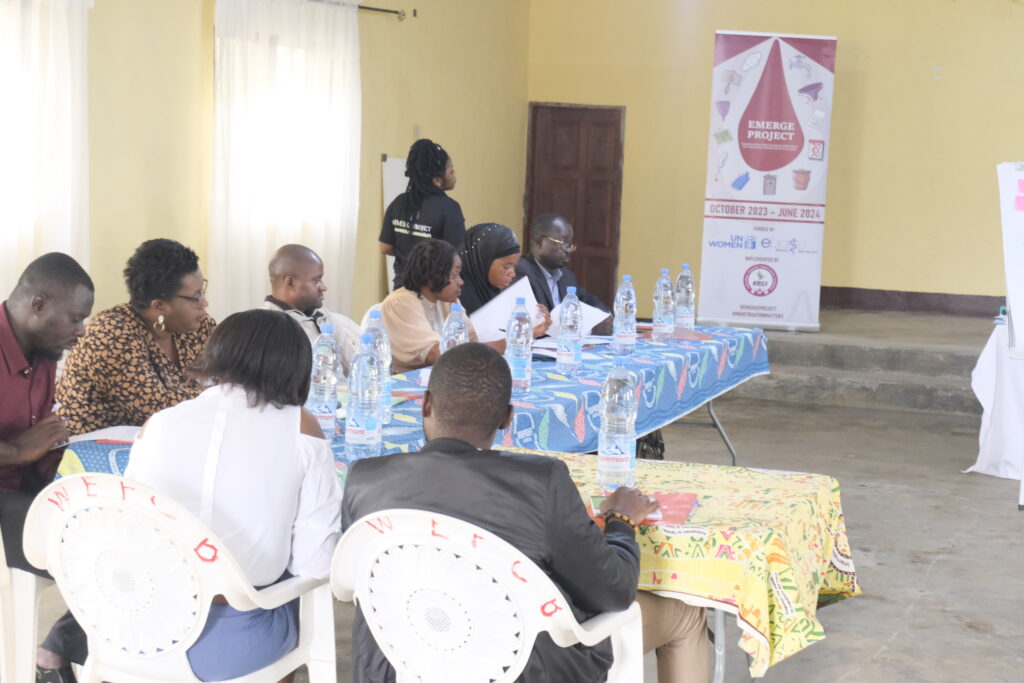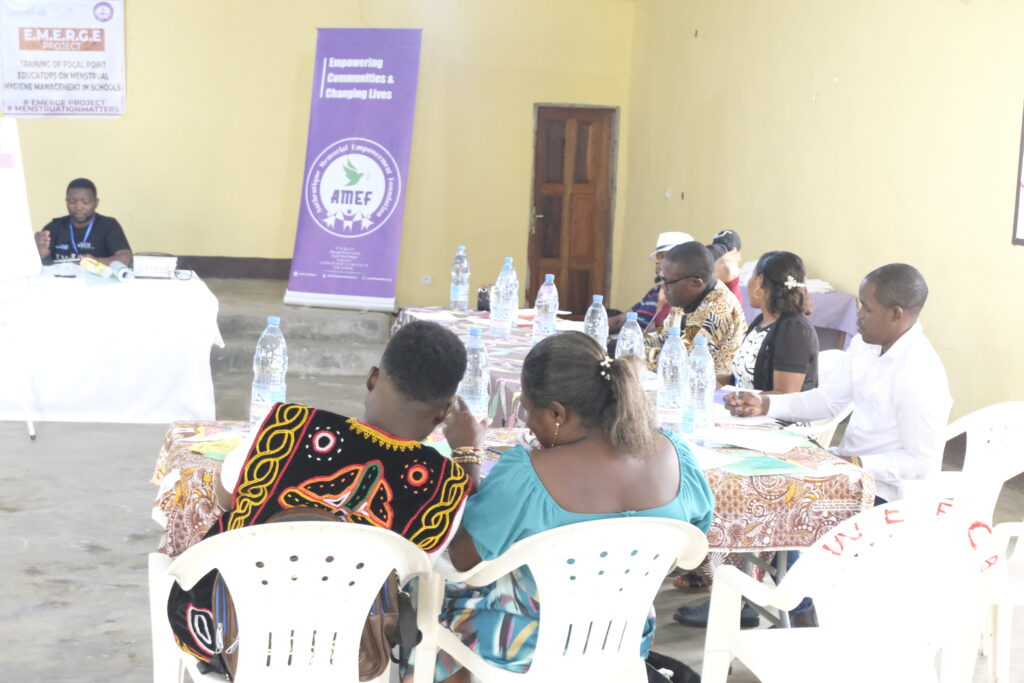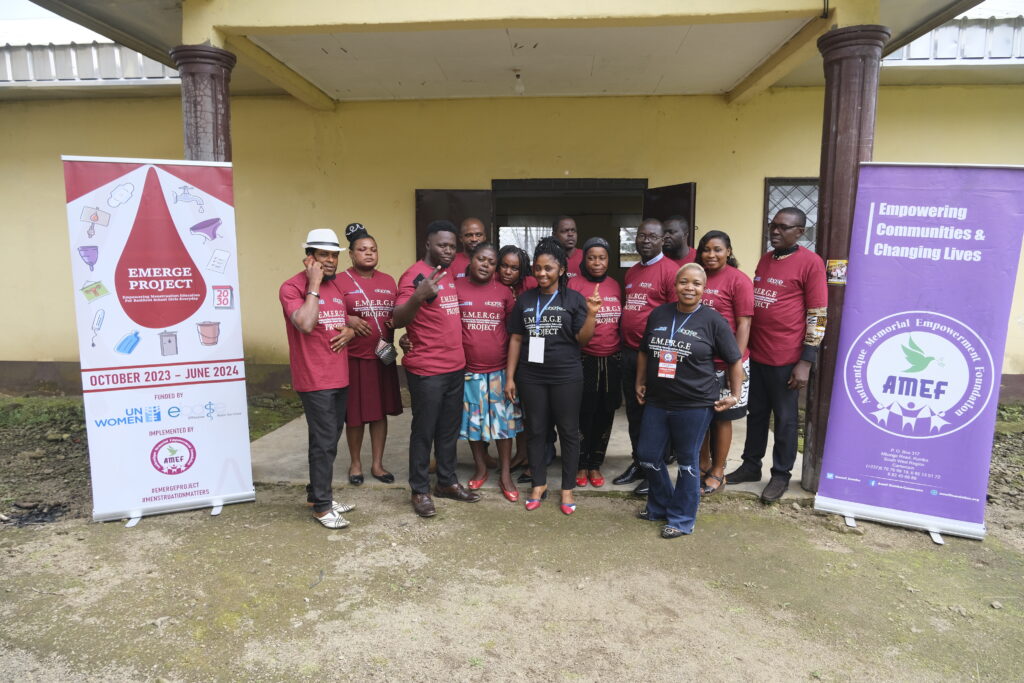Under the EMERGE (Empowering Menstruation Education for Resilient schoolGirls Everyday) project funded by UNWomen and Ebase Africa, AMEF has successfully conducted a training session with 20 educators from 10 selected schools in the South West Region to upskill them on Menstrual Hygiene Management (MHM) among adolescent school girls. This activity plays an important role in achieving an integral objective of the EMERGE project which seeks to boost knowledge about menstrual hygiene principles, break taboos, cultural and religious practices against menstruation and promote fair menstruation attitudes in the school environment.
During the training, it was observed that most institutions did not have the proper facilities such as gender sensitive toilets, appropriate sanitary disposal methods to manage menstrual hygiene. Some teachers also shared their challenges in managing menstruation among their students and one common factor which was noticed was the fact that most parents do not prepare nor provide adequate knowledge about menstruation to their daughters.
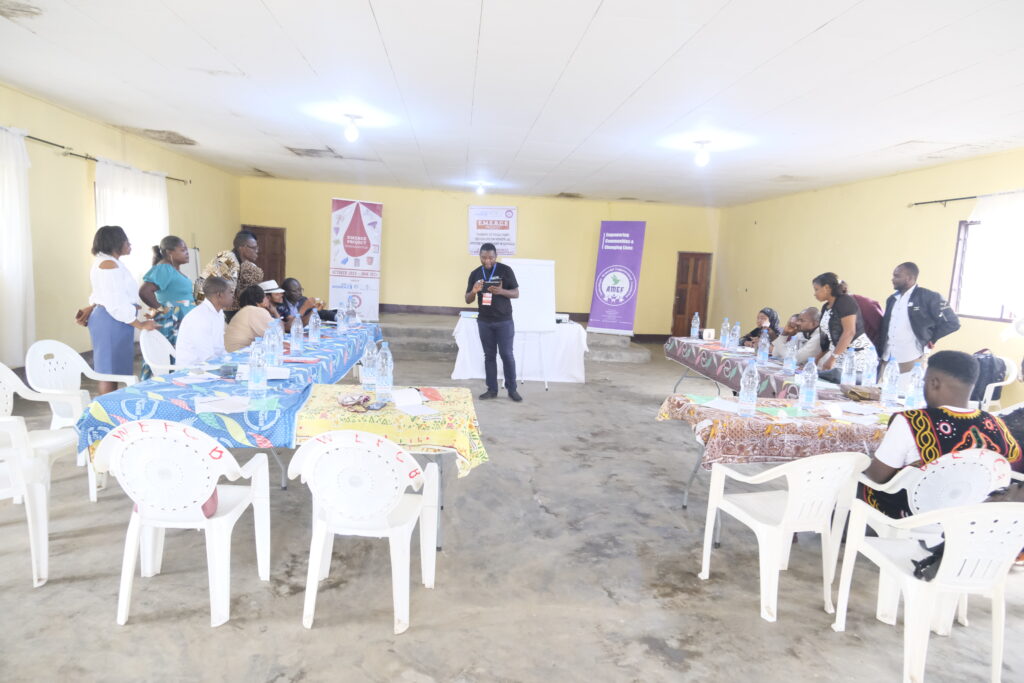
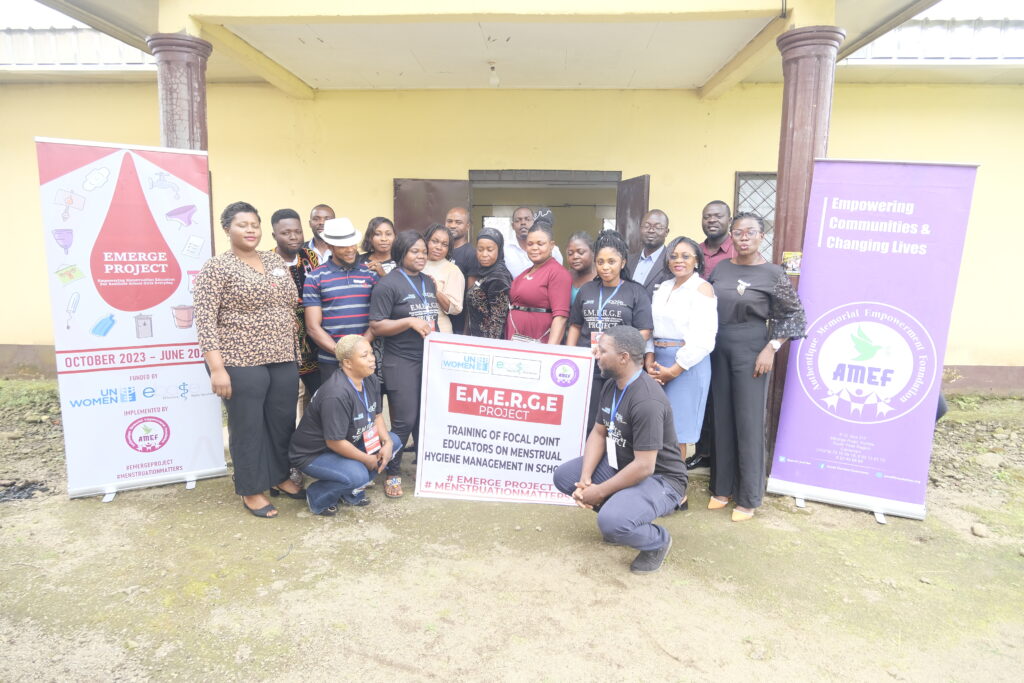
At the end of the workshop, the educators had gathered sufficient knowledge on the concept of MHM, its relationship with women’s health, the importance of involving men/boys and other stakeholders in advocating for positive attitudes towards menstruation, menstruation and disabilities, the need to properly disposal menstruation materials as well as the facilities needed at schools, work and other public places for proper MHM.
During the meeting, AMEF equally launched its ‘STOP GBV in Schools’ campaign as part of her activities to commemorate the 16days activism to end Gender Based Violence. This campaign will focus on sensitizing students on GBV issues such as sexual assault, physical violence, bullying, etc. The students will be involved gender club activities run by trained peer educators and supervised by trained teachers who will act as focal points. These meetings will allow students to share experiences, learn key life skills, leadership, and boost their self-esteem and confidence.
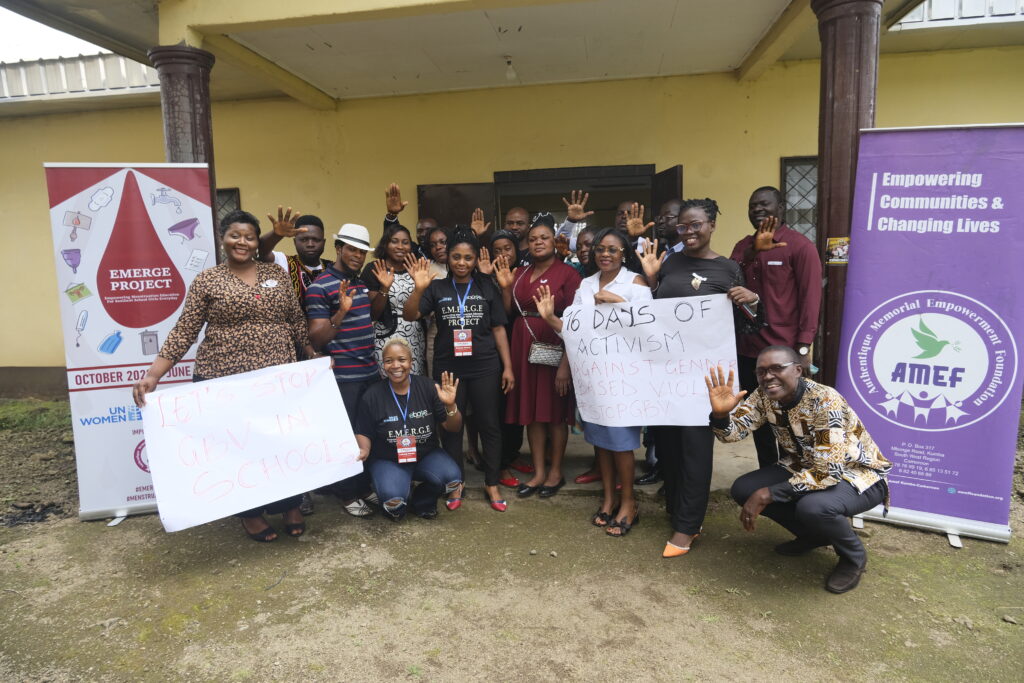
At the end of the day, the educators affirmed their contribution in improving menstruation education among adolescent girls in their institution as a bid change negative perceptions about menstruation and MHM
